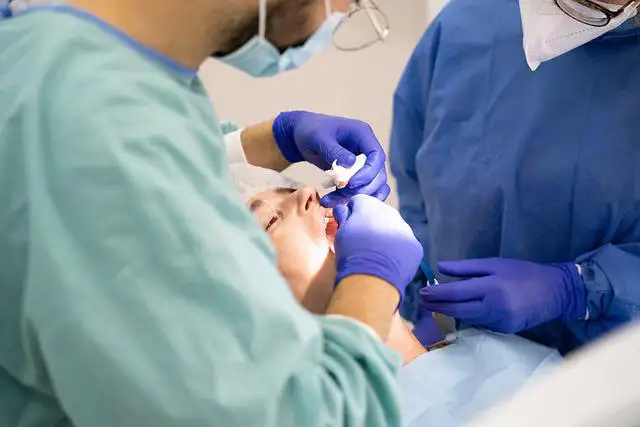Dental implants offer a revolutionary solution for replacing missing teeth. These biocompatible titanium posts, surgically embedded in the jawbone, provide a sturdy foundation for crowns, bridges, or dentures, restoring both function and aesthetics. But just like natural teeth, dental implants require dedicated care to maintain their long-term health and success. This comprehensive guide delves into the essential practices for keeping your dental implants thriving, ensuring your smile stays bright and confident.
Brushing: The Bedrock of Implant Care
Brushing twice daily is the cornerstone of dental implant maintenance. Opt for a soft-bristled toothbrush, as harsh bristles can scratch the implant surface or damage the surrounding gum tissue. Choose a non-abrasive toothpaste to further minimize the risk of scratches.
Mastering the Technique:
Angle your brush at 45 degrees: This allows bristles to reach under the crown and along the gum line where plaque tends to accumulate.
Use gentle circular motions: Avoid vigorous scrubbing, which can irritate the gums.
Pay special attention to the implant-crown interface: This area is prone to plaque buildup, so dedicate extra time to cleaning it thoroughly.
Don't forget the tongue and cheeks: Brushing these areas removes bacteria that can contribute to bad breath and gum disease.
Flossing: Reaching the Hidden Corners
Flossing daily is crucial for removing plaque and food debris between the implant and surrounding gum tissue, areas your toothbrush cannot reach. Regular flossing prevents plaque buildup, which can lead to peri-implantitis, a bone infection that can jeopardize the implant's success.
Flossing Strategies for Implants:
Unwaxed floss: This type of floss glides more easily between the implant and gum tissue.
Implant-specific flossers: These flossers have a stiffer end to clean under the crown and a softer section for the gums.
Water flossers: These irrigators can be a helpful alternative for individuals with dexterity limitations or tight spaces.
Regular Dental Checkups: Your Partner in Implant Health
Just like natural teeth, dental implants require regular professional cleanings and checkups. Schedule appointments with your dentist every six months for:
Professional cleaning: Dental hygienists use specialized tools to remove stubborn plaque and tartar that may have accumulated around the implant and crown.
Implant assessment: Your dentist will check for signs of inflammation, loose screws, or any other potential issues with your implants.
Oral hygiene coaching: Receive personalized advice on brushing, flossing, and other strategies to optimize your implant care routine.
Beyond the Basics: Additional Tips for Optimal Implant Care
Limit hard and sticky foods: Avoid nuts, hard candies, and chewy foods that can put undue stress on your implants and potentially damage them.
Quit smoking: Smoking significantly increases the risk of peri-implantitis and weakens the bone around the implant.
Use an oral irrigator: An oral irrigator can effectively remove food debris and plaque from hard-to-reach areas, further enhancing your cleaning routine.
Maintain good overall health: Chronic health conditions like diabetes can impact your oral health and increase the risk of implant complications. Prioritize overall health management for optimal implant success.
Remember: By consistently practicing these oral hygiene habits, attending regular dental checkups, and adopting healthy lifestyle choices, you can ensure your dental implants thrive for years to come, giving you a confident smile and optimal oral health.

